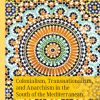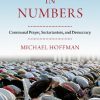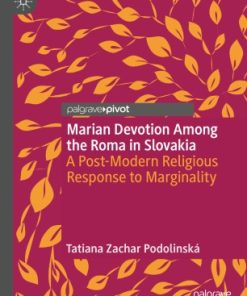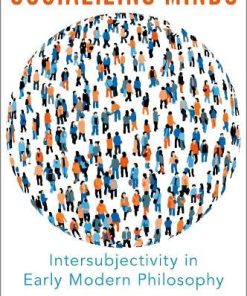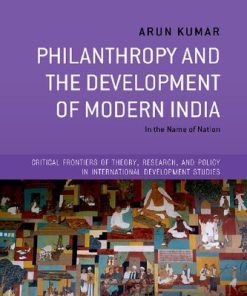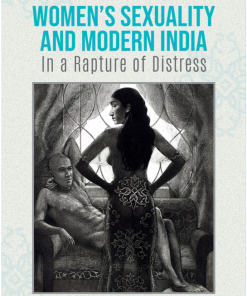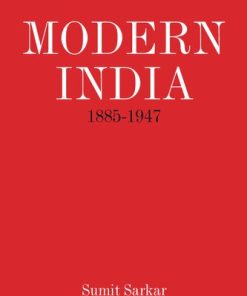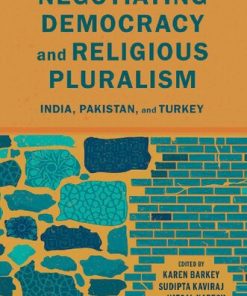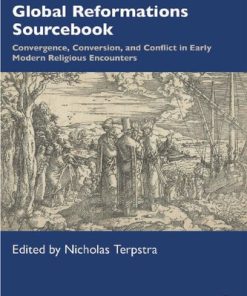(Ebook PDF) Religious Interactions in Modern India 1st Edition by Martin Fuchs 1317982878 9781317982876 full chapters
$50.00 Original price was: $50.00.$25.00Current price is: $25.00.
Religious Interactions in Modern India 1st Edition by Martin Fuchs – Ebook PDF Instant Download/DeliveryISBN: 1317982878, 9781317982876
Full download Religious Interactions in Modern India 1st Edition after payment.
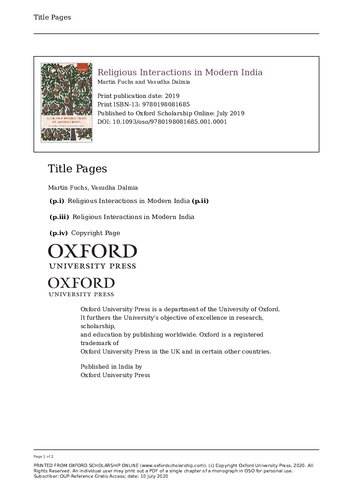
Product details:
ISBN-10 : 1317982878
ISBN-13 : 9781317982876
Author : Martin Fuchs
Religious authority and political power have existed in complex relationships throughout India’s history. The centuries of the ‘early modern’ in South Asia saw particularly dynamic developments in this relationship. Regional as well as imperial states of the period expanded their religious patronage, while new sectarian centres of doctrinal and spiritual authority emerged beyond the confines of the state. Royal and merchant patronage stimulated the growth of new classes of mobile intellectuals deeply committed to the reappraisal of many aspects of religious law and doctrine. Supra-regional institutions and networks of many other kinds – sect-based religious maths, pilgrimage centres and their guardians, sants and sufi orders – flourished, offering greater mobility to wider communities of the pious.
Religious Interactions in Modern India 1st Table of contents:
1. The debate within: a Sufi critique of religious law, tasawwuf and politics in Mughal India
Shaikh ‘Abd al-Rahmān Chishtī’s Mir’āt al-Asrār
The ‘religion’ (mazhab) of the Sufi
The debate on religious law and tasawwuf
The Naqshbandī view of tasawwuf
Chishtī and the Mughal rulers
Towards a redefinition of tradition
Conclusion
Acknowledgements
Notes
Bibliography
2. The four sampradāys: ordering the religious past in Mughal North India
In search of the four sampradāys
Inward directed or outward?
Problems of dating
Questions in conclusion
Acknowledgements
Notes
Bibliography
3. Theology and statecraft
Conclusion
Acknowledgements
Notes
Bibliography
Abbreviations
Unpublished texts
Published texts
Secondary sources
4. Advaita Vedānta in early modern history
Introduction
A survey of works, authors and trends
Literary trends
Currents of thought
Networks
Banaras and the south
Advaita Vedānta and social institutions
Social history of Advaita Vedānta?
Excursus – four Advaitin authors and the personal contact between them: Nrsimhāśrama, Appayya Dīksita, Bhattoji Dīksita and Rangoji Bhatta
N(?)A: Nrsimha and Appayya
N(?)B: Nrsimha and Bhattoji
A(?)B: Appayya and Bhattoji
N(?)R and BR: Nrsimha, Bhattoji and Rangoji
Acknowledgements
Notes
Bibliography
5. The Brahmin double: the Brahminical construction of anti-Brahminism and anti-caste sentiment in the religious cultures of precolonial Maharashtra
The theatre of caste politics
Caste, cultural power and the vernacular turn
The conservative radical
Love, caste and culture at the end of empire
The play of caste in public culture
Acknowledgements
Notes
Bibliography
6. Speaking from Siva’s temple: Banaras scholar households and the Brahman ‘ecumene’ of Mughal India
Introduction
Families in motion: Maratha Brahman migrations to Banaras
The scholar household and the Brahman ‘ecumene’ in Banaras
Geographies of Brahman identity
Speaking from Siva’s temple: the locale of the assemblies
Speaking from Siva’s temple: the assemblies and their judgements
Conclusions
Acknowledgements
Notes
Bibliography
7. A tale of two temples: Mathurā’s Keśavadeva and Orcchā’s Caturbhujadeva
Introduction
The Mathurā site prior to Mughal rule
Mathurā and court politics under Akbar
Orcchā–Mughal relations and the building of the Caturbhuja
The Caturbhuja temple, finished and eulogized under Vīr Singh
The building of Vīr Singh’s Keśavarāya temple in Mathurā
Mythologizing Vīr Singh in Sanskrit
Destruction of the Bundelā temples
Conclusions
Acknowledgements
Notes
Bibliography
Dictionary abbreviations
Primary sources
Primary sources in translation from Persian
Secondary sources
8. Replicating Vaisnava worlds: organizing devotional space through the architectonics of the mandala
Religious nostalgia and memory
Krsna’s world of timeless Vraja
Krsna’s world replicated in Gaura’s Navadvīpa
Accommodating apparent disjunctions of representation
Constructing ritual time and space
Replicating Vrndāvana in the new age
Rereading the mechanics of the Kheturī festival
People also search for Religious Interactions in Modern India 1st:
sarah mcgrath moral knowledge
moral knowledge definition
moral knowledge examples
moral knowledge is also known as what
moral knowledge meaning
Tags:
Religious,Interactions,Modern India,Martin Fuchs
You may also like…
Politics & Philosophy - Anthropology
Business & Economics - Mathematical Economics
History - Indian History
Modern India 1885 1947 1st edition by Sumit Sarkar 9332535749 978-9332535749
Politics & Philosophy - General & Miscellaneous Philosophy
History - World History
Negotiating Democracy and Religious Pluralism: India, Pakistan, and Turkey Karen Barkey
Politics & Philosophy


